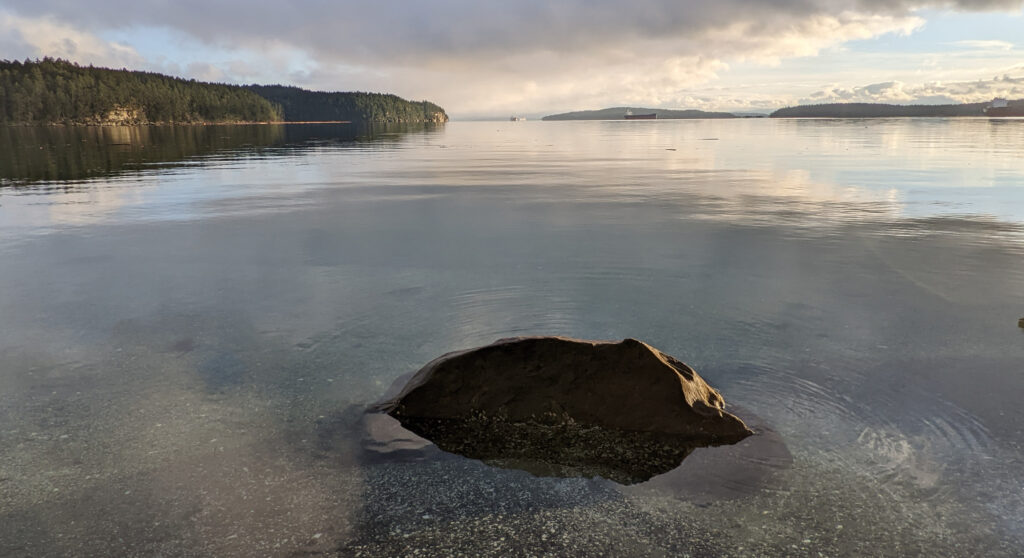This decision concerns an appeal from the adjudication of a treaty claim and a claim to Aboriginal title to submerged lands.
The Chippewas of Nawash Unceded First Nation and the Saugeen First Nation (referred to collectively as the Saugeen Ojibway Nation) brought an action against Canada and Ontario for a declaration that they have Aboriginal title to submerged lands in a large section of Lake Huron and Georgian Bay, and for declarations that the Crown breached legal obligations to the plaintiffs in the making of two treaties with the plaintiffs. In 2021, the court dismissed the claim. The plaintiffs appealed.

Photo credit: Doane Gregory
On August 30, the Ontario Court of Appeal released its judgment allowing the appeal in part and remitting the matter back to the trial judge “to determine whether Aboriginal title can be established to a more limited and defined area.” The court held that the trial judge had not erred in her application of the test for proof of Aboriginal title to the claim area but that the plaintiffs ought to be permitted to seek a declaration of title to a subset of the claim area.
Among the issues in the case was whether the claim area (depicted below), as submerged lands, could be subject to a claim of Aboriginal title. The trial judge held that it could not because, at common law, navigable water is not capable of ownership and is subject to a public right of navigation. The Court of Appeal, while affirming the trial judge’s decision not to grant a declaration of Aboriginal title, declined to decide the issue of whether Aboriginal title could exist to land submerged by navigable waters. The court observed that “Not every use of submerged lands will interfere with navigation… Some instances of Aboriginal title to submerged lands may have no practicable effect on the public right of navigation and may be entirely compatible with it.” The court held that it is unnecessary and impossible to determine whether the public right of navigation is incompatible with Aboriginal title until the extent of Aboriginal title in submerged lands is known.
![Reference map in judgement for 2023 ONCA 565 [Chippewas]](https://www.mandellpinder.com/wp-content/uploads/2023/10/2023-ONCA-565_Chippewas.jpg)
Reference map in judgement for 2023 ONCA 565 [Chippewas].
The other part of the action involved a treaty claim, which itself had two aspects. The first aspect concerns an allegation of breach of Treaty 45 ½, signed in 1836, by the Crown’s failure to protect the Saugeen Peninsula from settler encroachment, which the trial judge agreed was a breach of treaty and of the honour of the Crown. The second part of the claim is an allegation that the Crown breached the honour of the Crown and its fiduciary obligations to the plaintiffs in the negotiation of Treaty 72 in 1854, a claim the trial judge rejected. The Court of Appeal upheld both findings. Though it was not necessary for it to do so, the court also considered and rejected Ontario’s argument that it has immunity from a claim for damages for breach of fiduciary duty under the doctrine of Crown immunity.
The Court of Appeal also dealt with the plaintiffs’ claims against certain municipalities. The plaintiffs sought relief declaring that the local municipalities held roads and road allowance lands within the surrendered lands on the Saugeen Peninsula in trust for the benefit of the plaintiffs. The plaintiffs did not allege any wrongdoing against the municipalities but alleged that this relief should flow from the Crown’s breaches regarding the surrender of those lands under Treaty 72. The Court of Appeal struck this claim on several bases, including that there was no dispute as to the validity of Treaty 72.
This case summary provides our general comments on the case discussed and should not be relied on as legal advice. If you have any questions about this case or any similar issue, please contact any of our lawyers.
See CanLII for the Reasons for Judgement.